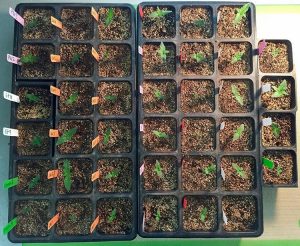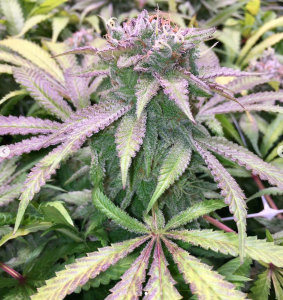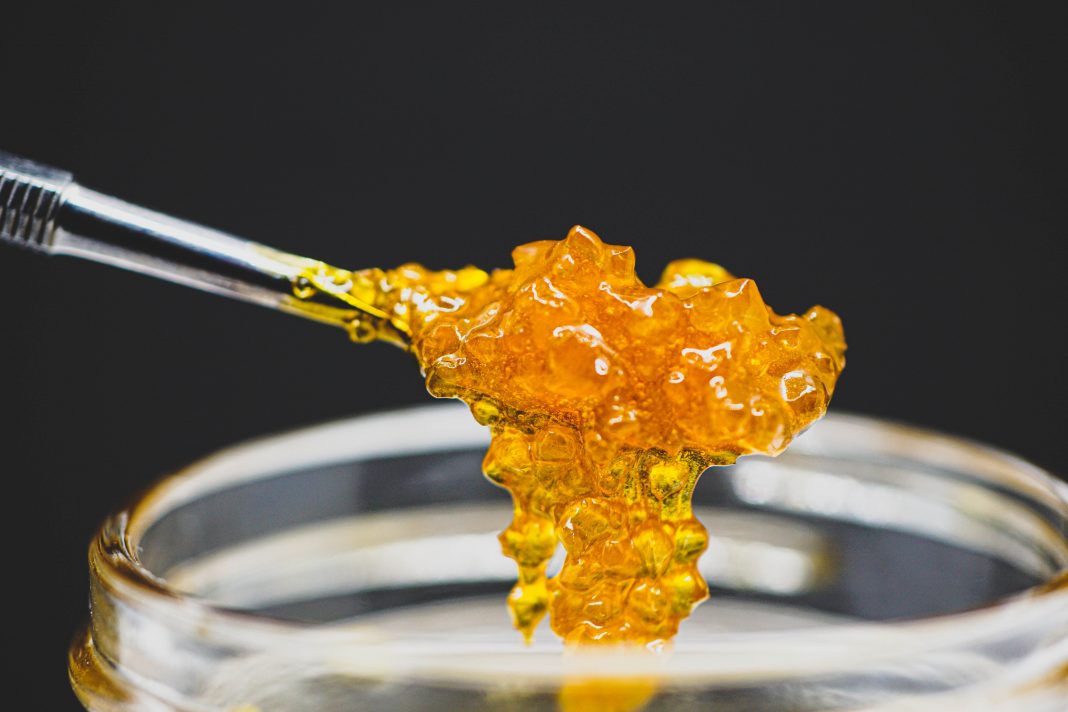You’re probably familiar with the marijuana stores that have popped up all over Whatcom County since recreational marijuana was legalized, but we don’t often see the people responsible for growing their products. A look behind the scenes reveals that the life of these farmers is one of hard work, good science and plenty of dedication.

One of the smaller operations, Gasworks, is staffed solely by Michael Klein, who figures he works ten or twelve hours a day, seven days a week. “The plants are ‘awake’ for 12 hours a day, and they ‘sleep’ for 12 hours a day, so I’m here when they wake up,” he says. His work ethic has made him responsible for a wildly popular strain of cannabis known as “Lemon Cherry,” which he delivers to 25 stores, from downtown Bellingham’s Satori, all the way out to Yakima.
He picked his specialty plant because of its aromas and other intangible properties, and he’s the only person who grows it. “People like limited runs, and there are definitely connoisseurs. I would be considered a small-batch, craft grower,” he says, then gets right down to the nitty-gritty. “I produce cold-cured flowers that are terpene-rich—2.55 percent, placing it among the highest levels seen at testing lab in Seattle.”

Cannabis lovers discuss terpenes (the compounds contained in the plant’s essential oils) and aromas the same way a wine lover discusses flavors. And because a well-cured and properly stored flower can last for six months or more, you could even say that they age as a fine cheese would, with beneficial bacteria acting upon the aroma and the cannabinoids, the compounds that give each strain its characteristic “high.”
With all this talk of terpenes, cannabinoids and beneficial bacteria, you quickly learn that growing these crops uses an intense and highly specialized science. “The microbiome of the root system, the bacteria you find on the leaves and the cleanliness of the growing room are the most important parts of the process,” Klein says.
Growers deal with viruses, super-bugs and fungi that can ruin a crop, so he works in sealed environments where he can carefully control the amounts of different gases in the atmosphere, and the type and amount of light the plants receive. He’s worked for years to master his craft, completing over 100 growing cycles, and has learned to care for all of the different aspects of the process. “The final quality of the flower is especially dependent on three main factors: one third genetics, one third grower experience, and one third post-harvest handling,” he says.

The proper handling—especially the proper curing—of his plants is a large part of what sets him apart from other producers. “I recognized that I couldn’t compete with the giant corporations,” he says. “They’re bringing billions of dollars into the industry. But they can’t compete with me in the small-batch style. There’s a lot of nuance in growing style, and that can’t be copied; and there’s a curing process the big farms have a hard time reproducing on a large scale.”
After devoting himself to the careful growing and curing of the plants, Klein turns some of them over to local processors who produce concentrates, which are basically an essential oil that users can vaporize and inhale. As these concentrates have become more popular over the last few years, he estimates that cannabis in its flower form makes up only about a quarter of his output, while 75 percent arrives on the shelves as concentrate.

“I guess people think it’s easy money, that you just grow a plant and make a million dollars,” he says. Klein has had to work his way through a maze of building codes and workplace licenses to get where he is today. But it becomes clear as he speaks just how much he loves his work, and he invites the public to have a look at his world on Instagram, where he posts as @gasworksgarden.
As we finished talking, I brought up the old cliché: if you do what you love, you’ll never work a day in your life. He agreed, and responded in a quietly understated way: “After you’ve put so much into it, it’s fun to see it move forward.”
Sponsored










































